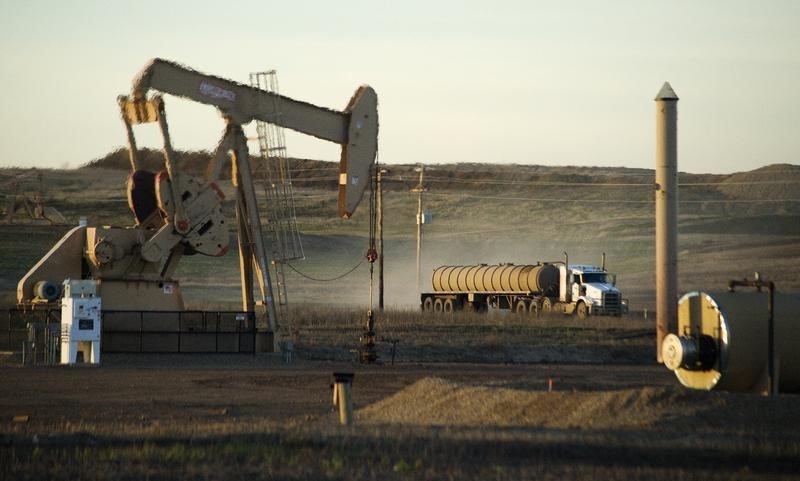By Geoffrey Smith
Investing.com -- Crude oil prices edged lower on Thursday as a bounce in U.S. stock markets proved short-lived, while another disappointing set of weekly jobless claims data reinforced concerns about the outlook for demand.
By 10:40 AM ET (1440 GMT), U.S. crude futures were down 0.2% at $39.86 a barrel, while the international benchmark Brent futures contract was down 0.4% at $41.59 a barrel.
U.S. Gasoline RBOB Futures were flat at $1.1820 a gallon, after the Labor Department reported that initial jobless claims edged up last week to 870,000. The numbers were seen as a sign that the rebound in the labor market is losing momentum
International prices continued to be weighed down by the gradual restart of exports from Libya, whose export terminals are starting to operate again after a lengthy shutdown due to the civil war in the North African OPEC member.
Libya’s National Oil Company said on Wednesday that its two biggest terminals, Ras Lanuf and Es Sider, still remain closed, but other terminals with a capacity of 420,000 barrels a day had reopened.
The increase in supplies risks delaying the decline in world stockpiles that the ‘OPEC+’ bloc of producers had counted on when they agreed last week to keep over 7.7 million barrels a day of output shut in through the rest of 2020.
Marco Dunand, chief executive of trader Mercuria, was quoted by Bloomberg in an interview as saying that if OPEC+ goes ahead with plan to increase output by 2 million barrels a day in January, the world market won’t be able to absorb it.
Dunand estimated that the drawdown in global stockpiles will only be around 1 million b/d in the fourth quarter, less than half of what the International Energy Agency had expected in the middle of the year, when the world economy started to recover from the Covid-19 pandemic.
“We are filling up both tankers as floating storage and onshore tanks in September,” Bloomberg quoted Dunand as saying. “There has been a slowdown in the global rebalancing process.”
Such developments are bad news for the U.S. shale patch. A monthly survey from the Dallas Federal Reserve found that most needed U.S. crude to trade above $50 before they would increase drilling substantially. Some two-thirds of the oil executives responding to the Dallas Fed’s survey said they thought U.S. oil output has now peaked.
Elsewhere Thursday, in another sign of the times, french major Total announced it would cease conventional refining at its Grandspuits refinery near Paris, to focus on the production of sustainable fuels.
